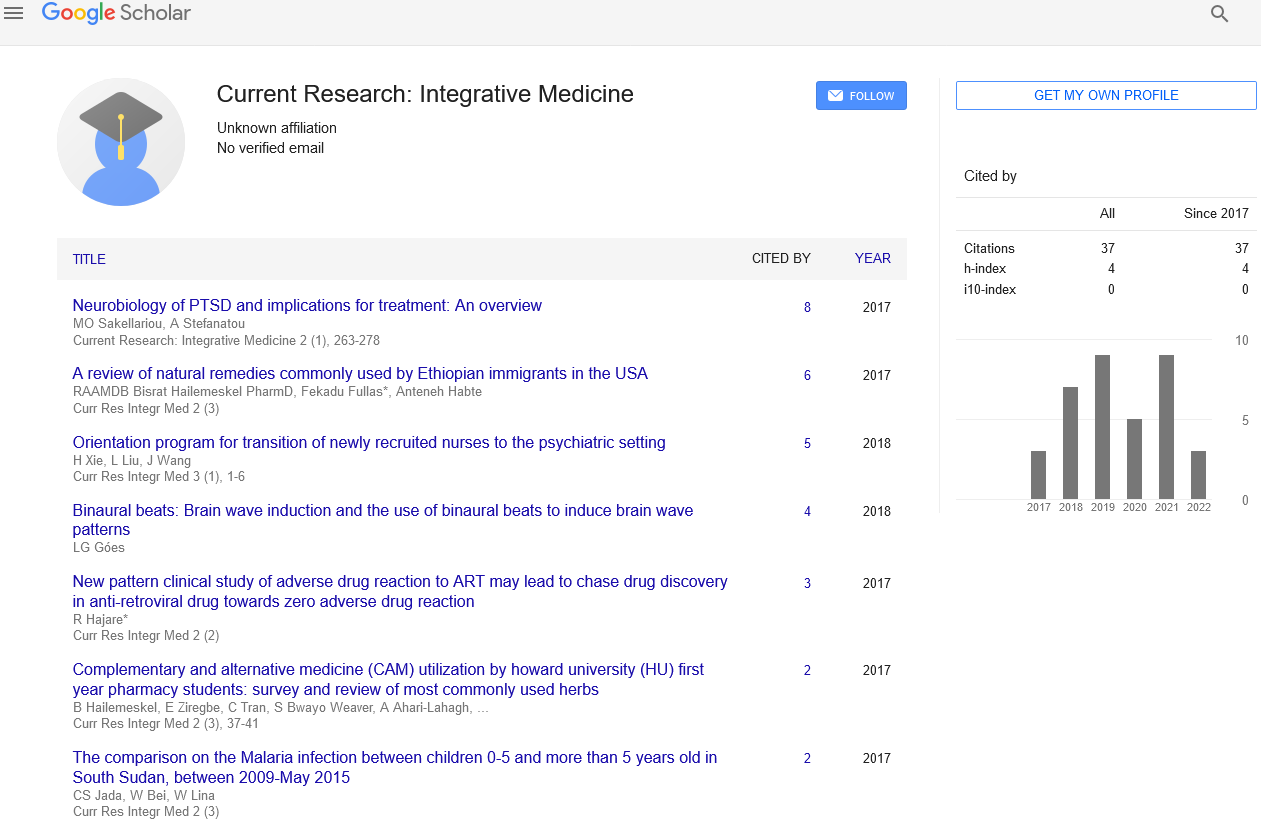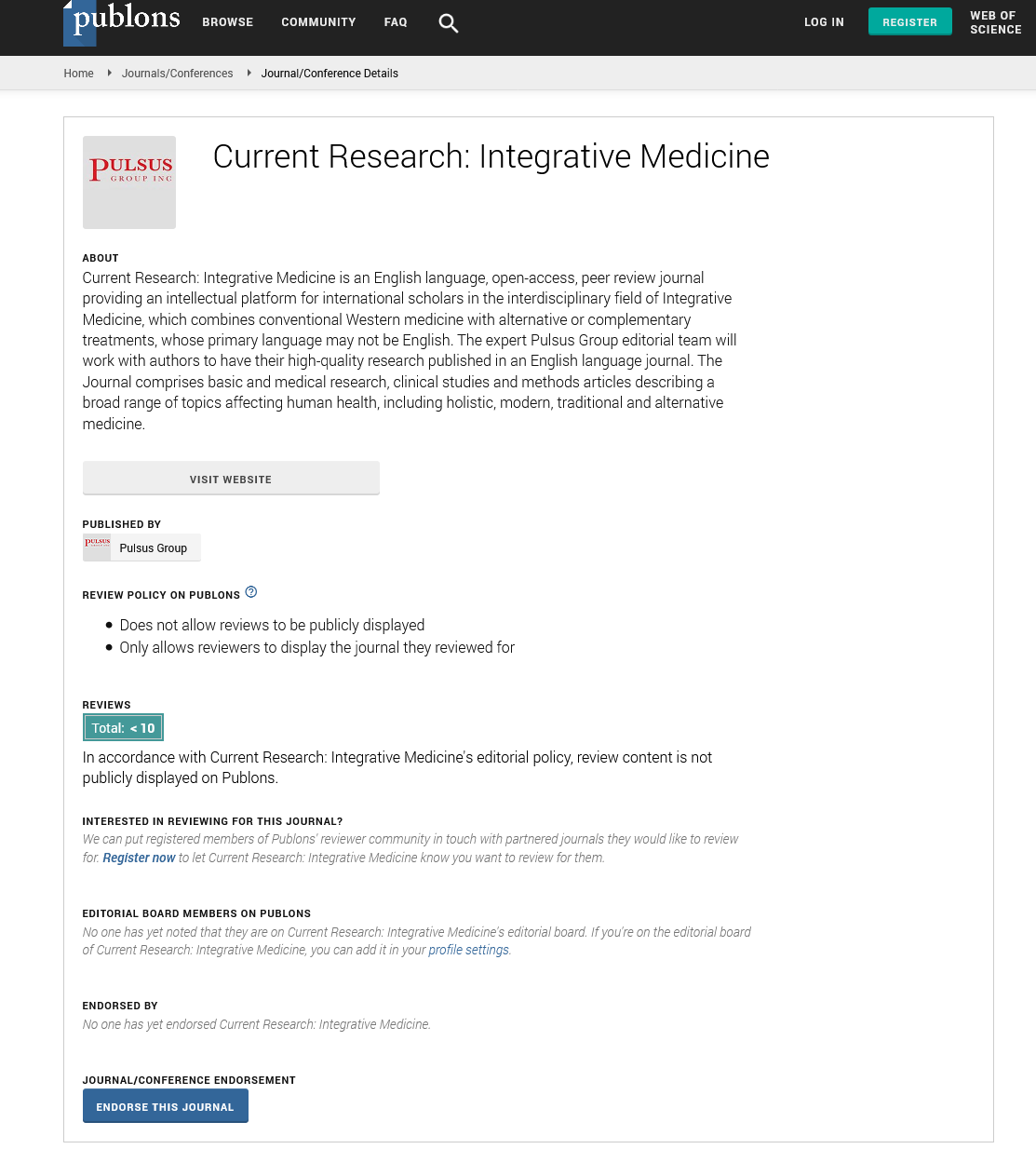Alternative medical approaches to rare and intractable diseases Which one is legal: waiting for evidences or offering a potential treatment?
Published: 26-May-2022, DOI: 10.37532.2022.7.3
This open-access article is distributed under the terms of the Creative Commons Attribution Non-Commercial License (CC BY-NC) (http://creativecommons.org/licenses/by-nc/4.0/), which permits reuse, distribution and reproduction of the article, provided that the original work is properly cited and the reuse is restricted to noncommercial purposes. For commercial reuse, contact reprints@pulsus.com
Abstract
Since the introduction of what we know as conventional medicine in the 17th century, scientists and medical practitioners tried to focus on evidence-based medicine more and more. Gradually, they tended to reject the traditional methods of treatment because in most cases, they lacked enough scientific data to support their efficacy or safety. It pushed aside the traditional medical approaches for many years. But, ordinary people continued to get help from traditional remedies mainly when they were disappointed in conventional medicine. At the same time, side effects faced conventional medicine with a huge challenge. Then, some practitioners tried to refer to older methods and suggested new alternative methods which were less harmful although being less proved to be effective by new methods of evidence-based medicine. This has been a challenge for followers of these two approaches to when and where one has some priority over the other. The problem gets more prominent during the management of rare conditions and patients suffering from intractable diseases when they have unsuccessfully tried several different diagnostic and therapeutic methods. Here, a survey is reported on the chief complaints of patients seeking help from alternative medicine and the reason they are approaching this field of medicine in order to make a realistic overall picture of the practical position of alternative medicine in the actual healthcare system and discuss the role of alternative medical practitioners in the public education towards a better and healthier society through integrative medicine by merging the conventional and alternative medicine.
Abstact
Since the introduction of what we know as conventional medicine in 17th century, scientists and medical practitioners tried to focus on evidence based medicine more and more. Gradually, they tended to reject the traditional methods of treatment because in the most cases, they lacked enough scientific data to support their efficacy or safety. It pushed aside the traditional medical approaches for many years. But, ordinary people continued to get help from traditional remedies mainly when they were disappointed from the conventional medicine. At the same time, side effects faced the conventional medicine with a huge challenge. Then, some practitioners tried to refer to older methods and suggested new alternative methods which were less harmful although being less proved to be effective by new methods of evidence based medicine. This has been a challenge for followers of these two approaches to when and where one has some priority to the other. The problem gets more prominent during the management of rare conditions and patients suffering from intractable diseases when they have unsuccessfully tried several different diagnostic and therapeutic methods.
Here, a survey is reported on the chief complaints of patients seeking help from alternative medicine and the reason they are approaching this field of medicine in order to make a realistic overall picture of the practical position of alternative medicine in the actual healthcare system and discuss the role of alternative medical practitioners in the public education towards a better and healthier society through integrative medicine by merging the conventional and alternative medicine.
Biography
Dr. Mehdy Ghaeminia is a medical practitioner with a PhD degree from National University of Singapore and an acupuncture degree from Singapore College of Traditional Chinese Medicine. He has been involved in a wide range of biomedical research as a medical student in Shiraz University of Medical Science or a PhD student in National University of Singapore and as an independent medical practitioner and acupuncturist. This included the study of effects of different complementary medical practices such as herbal medicine, acupuncture, physical exercise, etc. on human and animal neurological, metabolic and reproductive performance






